A nursing mother should receive a full amount of the necessary nutrients and vitamins for the body. This is only possible with a balanced diet, which is unthinkable without fruit. And if claims to our "native" apples do not arise, then what about the abundance of other fruits? After all, very useful, rich in microelements and seemingly familiar fruits can harm a baby. We offer a number of principles that a young mother should adhere to when compiling her menu, and each nursing mother should know what fruits can and should not be eaten during breastfeeding.
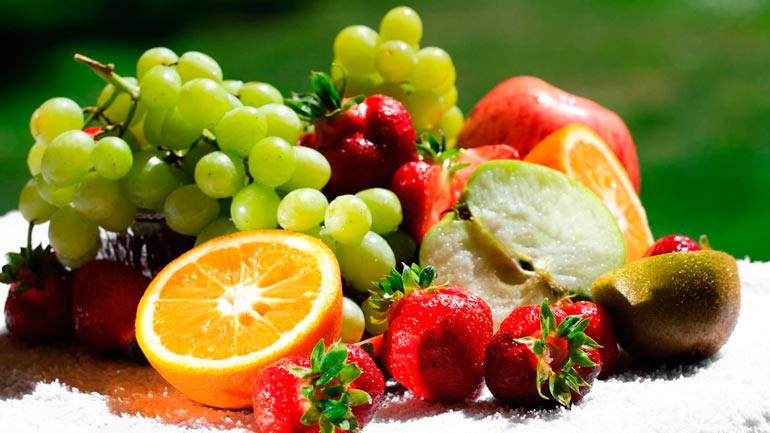
It's no secret that often the nutrition of a nursing mother is significantly different from the nutrition of other people. Pregnancy, childbirth and the next few months after childbirth take away a huge amount of energy, so she needs to replenish the body's resources. Eating fruits during breastfeeding, the mother provides herself and her baby with the necessary vitamins.
Do no harm: how to avoid allergies and not provoke colic
Before the child’s month, we select the fruits by the exclusion method:
- By color: remove red and orange fruits from the diet. The pigment, which gives them a bright color, provokes allergic skin reactions - rash, spots. An exception may be a red apple, if you first remove the skin from it.
- By genus: exclude citrus fruits. The high content of vitamin C makes them strong allergens. You can only put a small slice of lemon in tea.
- By the degree of impact on the intestinal microflora: grapes, plums, some varieties of pears. They cause bloating, flatulence. From the plum, expect a surprise in a strong laxative effect, which is completely undesirable for a small body (but during constipation in a mother or baby, a plum can just come to the rescue).
Founding Article: What you can eat with breastfeeding
Down with the exotic, eat your
Fragrant exotic fruits (papaya, mango, pineapple) and the citrus fruits mentioned above are harmless because of their foreignness to our lands. Example: in sunny Spain, oranges and tangerines in the first positions in the diet of mothers and in complementary foods for children. For them, it is a lesser allergen than the same cereals with gluten content. But for Russia, especially central, it is still exotic and a certain risk.The exception is hypoallergenic bananas, which Russians enjoy eating since childhood.
The benefits of an apple from its garden, in comparison with the exotic fruit that came from overseas regions, are obvious: the first option is much more practical and nutritious.
It is proved: the human body absorbs fruits faster and better, which are characteristic for a specific region in which a person lives.
But it is wrong to exclude “non-native” fruits from the diet as a whole. It is through breast milk that a child gets acquainted with all the nutritional components. And subsequently, during the period of feeding the baby, in particular fruit, it will be much easier. The child will already get used to the components of various fruits that were previously eaten by the mother and will take them without undesirable reactions, and the mother also gives the milk protective mechanisms against potential allergens that she has already formed.
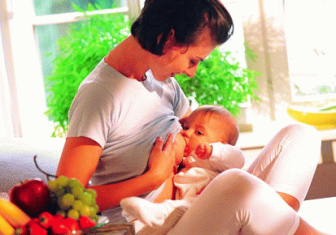 Exotic fruits, by definition, are imported and the conditions for their transportation are far from ideal. Not a single fruit or berry will be able to endure a long journey if it is not previously treated with chemicals for better storage. And if you dare to bite a foreign forbidden fruit, then do it little by little and not in the first month of the baby’s life. It is better to remove the peel, and the fruit itself must first be washed in a solution of baking soda.
Exotic fruits, by definition, are imported and the conditions for their transportation are far from ideal. Not a single fruit or berry will be able to endure a long journey if it is not previously treated with chemicals for better storage. And if you dare to bite a foreign forbidden fruit, then do it little by little and not in the first month of the baby’s life. It is better to remove the peel, and the fruit itself must first be washed in a solution of baking soda.
Seasonal fruits - the choice of a caring mother
Showcases and shelves of supermarkets and markets delight our eyes with fruit diversity all year round. A nursing mother is supposed to be on the alert and think: where did juicy blueberries or alluring raspberries come from in January? On the box we find the answer - Chile (or some other distant “banana” republic). About the harmful costs of transporting overseas fruits and berries, we mentioned above. And unpredictably, what effect will have chemical compounds that penetrate into breast milk on the fragile body of the baby.
As for seasonality, it is worth listening to the opinion of experts: most of the fruits have a clear time frame for ripening and in their "own" season they contain more vitamins and nutrients. The taste of fruit during natural ripening is also better.
Here is a list of seasonal fruits and berries that are very useful on HB.:
- Sweet cherry (white, yellow), from May to August. You can use it from the first day.
- Currant (red, black). It has a lot of vitamin C, and therefore refers to potential allergens. After the third month, you can introduce fruit drinks based on it, and then the berries themselves.
- Nectarines, peaches, mid July-September. They are rich in silicon, which is why they improve metabolic processes. You can try at first, most importantly, to monitor the reaction of the child.
- Figs, from June to September. It has an antipyretic, increases the body's resistance to diseases, which is important for HS, when there is a limited list of medicines in the reserve of nursing mothers.
- Persimmon, from October to December. It perfectly increases hemoglobin and saturates with iodine. When breastfeeding, it is better to introduce fruit into the diet after three months, but this fruit is not suitable for feeding: it is fraught with intestinal obstruction in the baby.
- Garnet. From September to the end of December. Pomegranate juice (diluted) in moderate consumption will only beautify mom's diet. Up to a month, it is better to abstain, and then try to enter, a single serving should be no more than 30 ml.
When the soul knows measure
It is necessary to introduce new fruits into the mother’s nutrition (also juices and fruit drinks) gradually, one new product over 3 days. It is advisable to eat a small slice in the first half of the day, the baby’s reaction (if any) will appear in the evening. If a suspicious reaction (spots or a rash on the skin, peeling, dry skin) has not slowed down, then you should exclude the use of this fetus for a period of one month, but then try again. The digestive tract of the baby ripens gradually and it is easier to get used to the new product. If everything is okay, eat calmly, the average daily portion of water for fruits is 200-300 gr.
It is important to consider your own individual intolerance: if before the pregnancy or during it some fruit caused rejection, do not push it now, even if it is very useful.
It should be understood: your baby is unique, his reaction is unpredictable. Some children calmly “digest” strawberries, while others sprinkle and swell from a neutral pear. But it’s worth adhering to general recommendations, because strong allergic reactions in early childhood are the cause of more complex diseases (atopic dermatitis, allergic asthma). Therefore, it is necessary to clearly divide: what kind of fruits are possible, which are not.
So, as a conclusion, below are the lists of allowed and not recommended fruits during breastfeeding.
Fruits Allowed for Breastfeeding
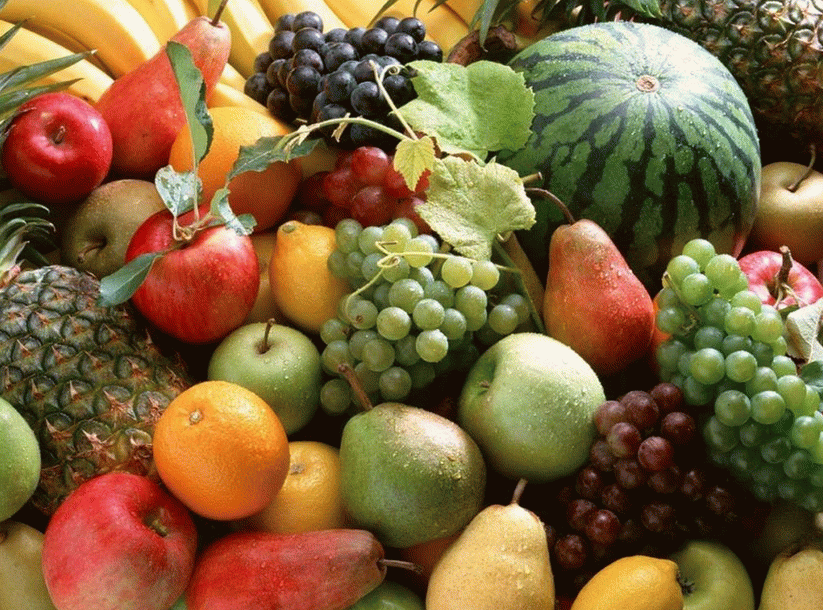
- The apples. Ideal for HS. Contain a large amount of fiber, provide iron, calcium, magnesium, iodine. It is filled with energy, restores strength and has a slight laxative effect. Most often, green apples are recommended, but with careful use, you can eat all varieties. It is recommended to eat apples after peeling, and even better when baked (bake, for example, in the microwave - the treat will be ready in 2-3 minutes), in order to avoid strong gas formation in the baby. More on apples with HS;
- Pears. The best source of folic acid, pectin, fiber for a nursing mother, also they have a large amount of potassium, vitamins A, B9, C. You need to eat without a peel and with extreme caution, it can provoke colic in a baby;
- Peaches. Useful fruits allowed during breastfeeding. They are rich in magnesium, it is a good antidepressant: it improves mood, stress resistance, balances the psyche, plus everything is an indispensable material for the development of the baby’s brain;
- Apricot. It is rich in vitamins, minerals, beta-carotene - it is so needed for the effective functioning of the immune system. In detail about apricot;
- Watermelon. Due to its wateriness increases lactation and improves metabolism. But there are pitfalls here - modern watermelon are grown with the help of chemical additives, so their use is better to limit or completely abandon them - more about watermelon with hot water;
- Plum. A good laxative, so if there is constipation in crumbs, mom can add a few plums to the menu. But do not get carried away with them, otherwise you can achieve the opposite effect - irritation of the intestinal mucosa and loose stools. In baby food departments you can find prune puree;
- Banana. An excellent dessert for mothers: it contains a lot of potassium, it stimulates the production of serotonin (a hormone of joy) and is an excellent source of energy. It has a high calorie content and minimal fat content. Great snack to replenish energy (see article on bananas);
- Berries (sweet cherries, gooseberries, cherries, currants) - a rich resource of antioxidants and vitamins and, as a rule, do not cause allergies in the baby. Most berries have enough vitamin C to boost immunity and prevent colds.
Unwanted fruit in the first 3 months
- Exotic (papaya, mango, feijoa, kiwi, a pineapple etc.) - may cause allergic reactions in the child. But the same kiwi is a source of vitamin E, which, unfortunately, is not found in all fruits. This antioxidant removes toxins from the body, normalizes the patency of the gastrointestinal tract, and prevents the development of cancer in the mother and child. In general, exotic fruits contain many vitamins, they are tasty and diversify the diet. However, leaning on them is not recommended. Starting from the age of four months, you can include one such fetus in the menu and look at the reaction of the baby. If nothing bothers him - you can eat. But be careful - any excessive use will affect the child .;
- Citrus (orange, lemon, lime, grapefruit, mandarin). The strongest allergens, they are recommended to be administered from the 4th month of the baby's life.Of the citruses, the fruit is pomelo good for mothers, it is less allergic, in comparison with its counterparts;
- Grapes The rich content of minerals and trace elements contributes to the full development of the skeletal system. But the baby has a high risk of bloating, so you need to eat it a little bit. In detail about grapes;
- Berries (raspberries, sea buckthorn, strawberries and strawberries) are “known” allergens, they should also be taken in food little by little.
Nursing mothers need a large number of vitamins and minerals of various groups in order to maintain full life, her and the child. Therefore, dear mothers, eat fruits, think about the safety of the baby, remember about a sense of proportion, and everything will be all right!
READ ALSO:
- Fruits in the nutrition of a nursing mother
- What kind of vegetables can a nursing mother eat while breastfeeding?
- Is it possible to eat melon for nursing mothers?
What kind of fruit can a nursing mother
Food for hot water: possible, not possible, reaction


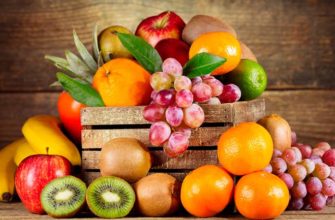

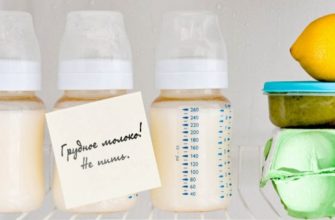
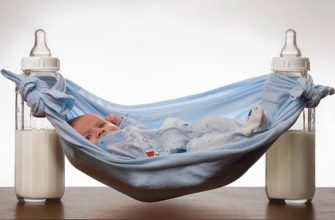



With bananas you need to be careful. Recently, many babies react to it. And I recommend replacing plums with prunes.
useful information, especially for pregnant women and young mothers. indeed, it is better not to abuse fruits so that there is no problem for the baby. but it is better to eat all fruits from your garden! and, of course, do not forget to drink multivitamins! then the child will be a hero.
Unfortunately, my child did not take bananas, they caused him colic, even at 3 months I can not afford them, just like peaches
My son doesn’t react to bananas, but he gives out gases to an apple slice of green without peel as an adult and the chair is greenish